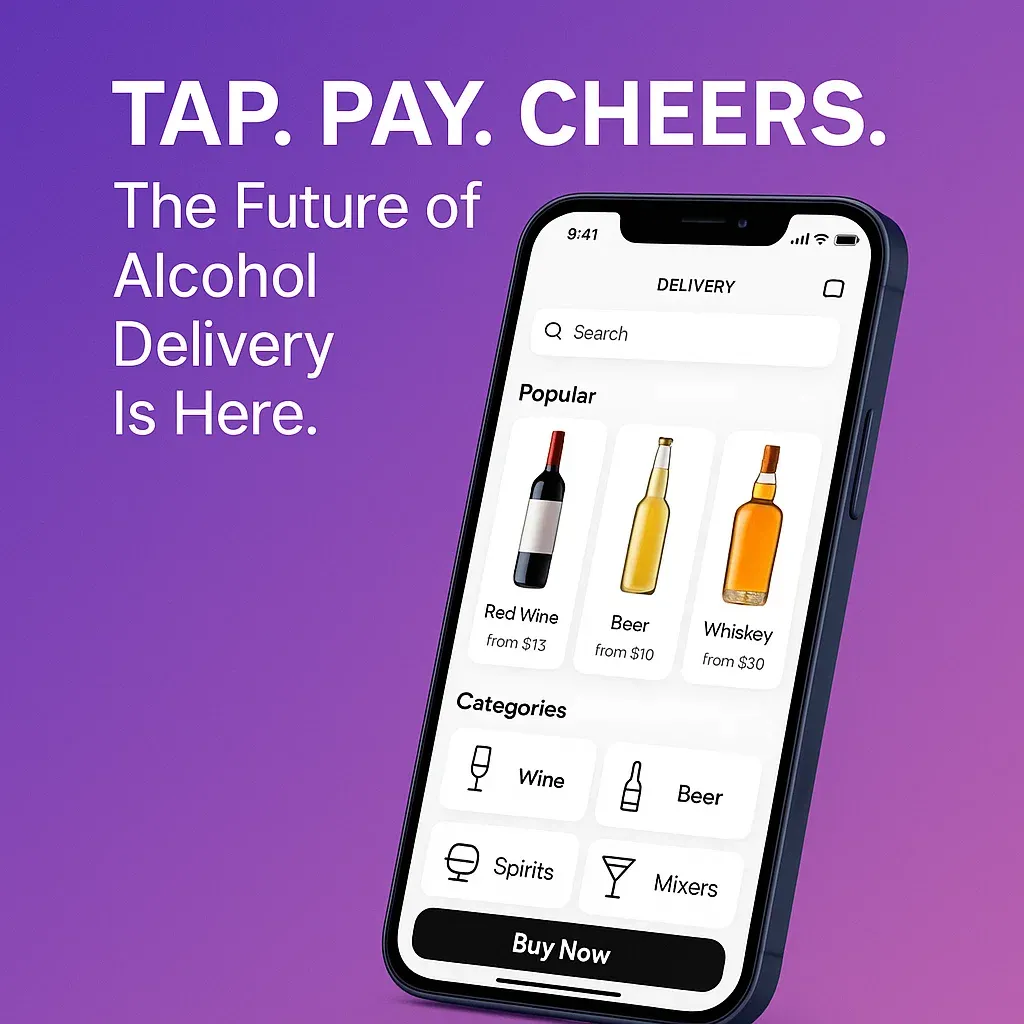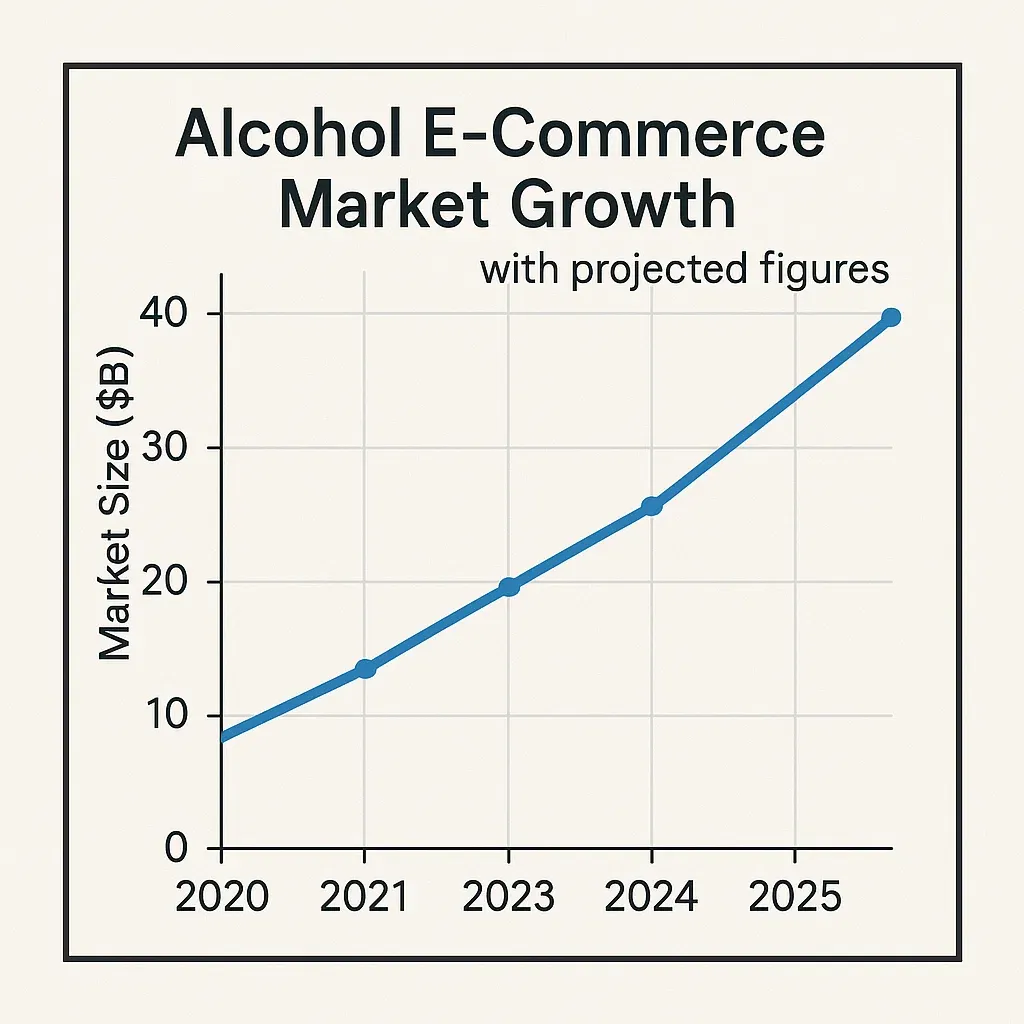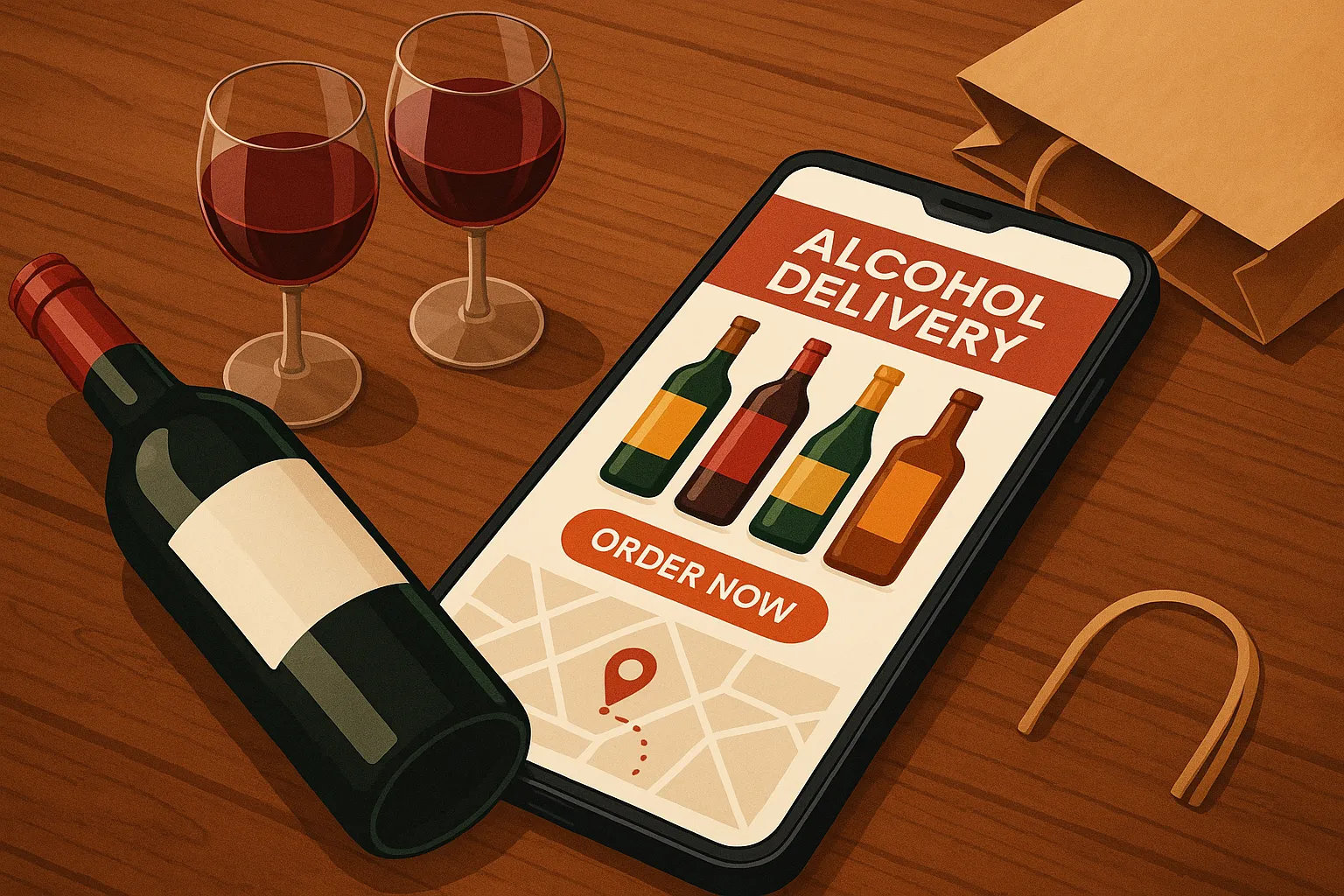The convenience economy is evolving fast, and alcohol delivery is pouring profits for the right founders. In 2025, alcohol delivery app startups are poised to tap into a massive demand wave driven by changing consumer habits, tech infrastructure, and regulatory modernization. The question isn’t if this sector will thrive—but who will win big.
If you’re a startup founder, entrepreneur, or digital agency wondering which most profitable alcohol delivery apps to launch in 2025, this guide is your strategic head start. We’ll unpack market trends, highlight the best app ideas with proven monetization strategies, and show you how to reduce risk and cost using ready-made clone solutions from Miracuves.

Read more: How to Build a Liquor Alcohol Delivery App Like Drizly
Why Alcohol Delivery Apps Are a Hot Opportunity in 2025
Alcohol e-commerce isn’t just a pandemic-era trend—it’s now a billion-dollar ecosystem. According to Statista, the online alcohol market is expected to exceed $42 billion by 2025, with a CAGR of 15% from 2023–2025. What’s fueling this explosive growth?
- Changing consumer behavior: Gen Z and Millennials prefer ordering alcohol online for convenience and discretion.
- Legal landscape easing: Many states and countries are liberalizing online liquor sales and allowing delivery services.
- Investment momentum: Platforms like Drizly (acquired by Uber) and Saucey have secured millions in funding, showing VC appetite.
- Tech enablers: Real-time tracking, payment integrations, ID verification, and AI-driven personalization are now standard.
Despite growth, there are gaps in hyperlocal delivery, B2B supply chains, and niche targeting (craft beer, rare wines, etc.)—presenting golden opportunities for focused entrepreneurs.

Top Profitable Alcohol Delivery App Ideas to Launch in 2025
1. Drizly-Style On-Demand Alcohol Delivery App
A real-time delivery platform that connects users with nearby liquor stores for quick, convenient alcohol delivery. Ideal for urban areas with high-demand surges. Monetized through commissions, delivery fees, and dynamic pricing, this model thrives on speed and convenience.
- Monetization: Delivery fees, surge pricing, partner store commissions.
- Why it works: Instant gratification is a consumer magnet, and ready-made Drizly clone apps make development faster.
2. Subscription-Based Craft Alcohol Club App
This app curates and delivers craft beers, wines, or whiskeys to users monthly, based on taste preferences. With high retention and predictable revenue, it caters to enthusiasts seeking exclusive experiences. Great for long-term growth via subscriptions and personalized upsells.
- Monetization: Recurring monthly/quarterly subscription fees.
- Why it works: High retention model, perfect for aficionados, with built-in upsell potential.
3. B2B Liquor Supply Chain App
Designed for wholesalers and venues, this app streamlines bulk alcohol procurement for bars, clubs, and restaurants. Monetized via SaaS or transaction fees, it solves operational pain points while digitizing the traditional supply chain for faster order processing.
- Monetization: SaaS fees, transaction cuts, featured listings.
- Why it works: Solves logistical inefficiencies and simplifies order management for bulk buyers.
4. Last-Minute Party Kit Delivery App
Built for spontaneity, this app delivers alcohol plus party essentials—ice, mixers, cups—within 30 minutes. Ideal for events and celebrations, it earns through premium kits and upsells, meeting impulse demand with convenience and speed.
- Monetization: Premium bundle pricing, upselling add-ons.
- Why it works: Capitalizes on impulse buying behavior with strong margins.
5. Alcohol & Food Pairing App
Combining gourmet food with alcohol, this app delivers curated pairings to elevate dining experiences. It appeals to upscale audiences and foodies, generating revenue through high-margin bundles and partner restaurant collaborations.
- Monetization: Premium pairings, partner restaurant commission.
- Why it works: Upscale, experience-driven audience; strong in urban markets.
6. Alcohol Gifting App
This platform allows users to send bottles with personalized messages or gift cards for special occasions. Monetized via packaging, gifting fees, and affiliate commissions, it captures the emotional, seasonal, and celebratory purchase market.
- Monetization: Gifting fees, branded gift wrapping, affiliate bottles.
- Why it works: High emotional value and shareability; perfect for holidays and celebrations.
7. AI-Powered Alcohol Discovery App
Leveraging AI, this app recommends spirits based on taste profiles and past behavior. With a focus on Gen Z and Millennials, it drives affiliate sales and ad revenue while enhancing user loyalty through tailored suggestions.
- Monetization: Affiliate purchases, premium recommendations, ads.
- Why it works: Personalization equals loyalty, especially among Gen Z.
What Makes an App Profitable in the Alcohol Delivery Niche?
A profitable alcohol delivery app isn’t just about the idea—it’s about smart execution. Here’s what defines success in this niche:
- Recurring revenue models: Subscriptions, loyalty clubs, or repeat ordering systems.
- High retention rates: Through personalized experiences, taste curation, and seamless UX.
- Low operational overhead: Using third-party logistics and cloud-native infrastructure.
- Aggressive acquisition strategy: Referral loops, influencer partnerships, and local SEO.
And most critically, clone app development slashes the cost and launch time drastically. Instead of building from scratch, founders can deploy proven models (like a Drizly Clone or Saucey Clone) and start acquiring users from day one.
Cost to Build an Alcohol Delivery App in 2025
The cost depends on your approach:
- Basic app (1 platform): $15,000 – $25,000
- Mid-tier (2 platforms, basic backend): $30,000 – $50,000
- Advanced (multi-vendor, AI, real-time logistics): $60,000 – $100,000+
Launch Your Alcohol Delivery App in Just 3–6 Days — Go Live with Miracuves from $2,500 to $3,000 and start delivering drinks to customers’ doors fast!
Key cost drivers:
- Frontend platform (iOS, Android, or both)
- Backend logic (real-time delivery, inventory sync, ID checks)
- UI/UX polish and animations
- Admin dashboard and analytics
- Compliance integrations (age verification, taxation)
With a white-label clone solution from Miracuves, startups save 60–70% on development time and budget while going to market faster.
Tips for Founders to Launch a Successful Alcohol Delivery App
Launching a profitable app requires more than code. Here’s what to focus on:
- Build an MVP first: Validate with a basic version before scaling.
- Invest in UI/UX: Make ordering and browsing smooth, especially for repeat use.
- Pre-launch marketing: Start building hype and waitlists even before launch.
- Scalable backend: Prepare for traffic spikes, especially during holidays or events.
- Post-launch support: Analyze user behavior, fix bugs quickly, and roll out updates.
Partnering with Miracuves ensures your app is not just functional, but built for scale, speed, and sustainability.
Read more: Top 10 Ideas for Alcohol Delivery Business Startups in 2025
Conclusion
If you’re scouting for a future-proof business in 2025, alcohol delivery apps are your ticket in. Whether it’s real-time delivery, curated subscriptions, or B2B marketplaces, the space is overflowing with profitable opportunities waiting to be tapped.
Instead of reinventing the wheel, use proven clone models to minimize risk and accelerate your go-to-market strategy. With Miracuves, launching a scalable, white-label alcohol delivery platform is now simpler, faster, and smarter than ever before.
At Miracuves, we help innovators launch high-performance app clones that are fast, scalable, and monetization-ready. Ready to turn your idea into reality? Let’s build together.
FAQs
Q:1 How much does it cost to build an alcohol delivery app?
The cost to build an alcohol delivery app with Miracuves would still follow your standard pricing structure, so you could say roughly $2,500-$3,000 for the 3-6 day Go-Live package.
Q:2 What features should a successful alcohol delivery app include?
ID verification, real-time delivery tracking, smart recommendations, and seamless payment integration.
Q:3 Is it better to build from scratch or use a clone solution?
Clone solutions offer faster launch, lower costs, and proven market fit—ideal for most startups.
Q:4 Can I customize a white-label clone to fit my brand?
Yes, most clone app providers like Miracuves offer full design and feature customizations.
Q:5 What regulations should I consider before launching?
Check local laws for alcohol delivery, age verification, licensing, and taxation.
Q:6 How long does it take to launch an alcohol delivery app?
With a clone, 2–4 weeks; from scratch, 3–6 months.
Related Articles:








